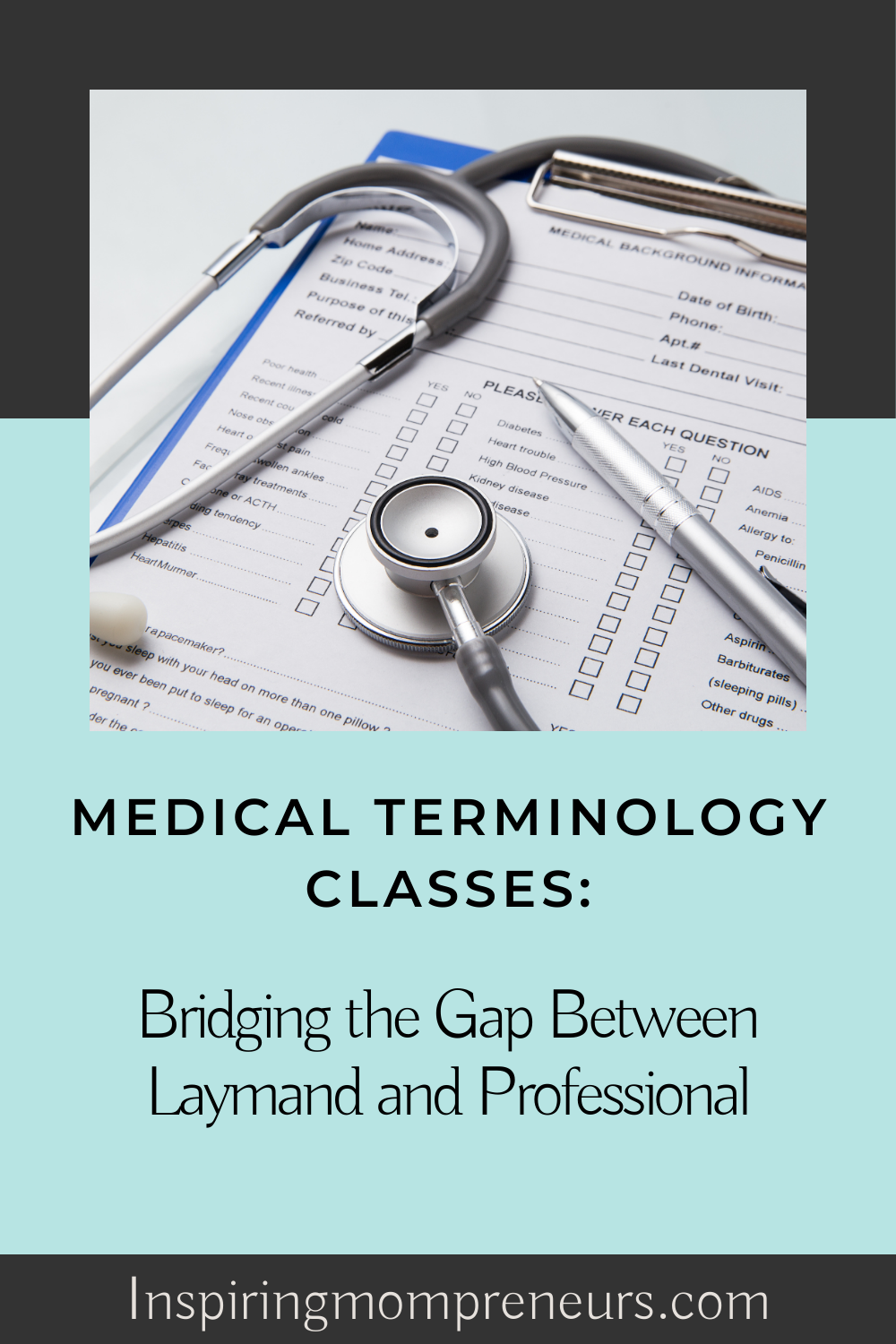Understanding medical jargon can feel like learning a new language. Doctors and healthcare professionals often speak in terms that sound foreign to the untrained ear. This can create a significant communication gap between medical professionals and patients.
Why Learn Medical Terminology?
 So, why should you consider diving into the world of medical terminology? Here are a few compelling reasons:
So, why should you consider diving into the world of medical terminology? Here are a few compelling reasons:
- Empowerment – Understanding medical terms empowers you to take control of your health. You’ll be able to comprehend your medical reports, prescriptions, and doctor’s advice with ease.
- Career Advancement – If you’re pursuing a career in healthcare, having a solid grasp of medical terminology is essential. It sets a strong foundation for further studies and professional development.
- Better Communication – For those already working in healthcare, these classes improve communication with colleagues and patients, leading to better patient care and fewer misunderstandings.
What to Expect in a Medical Terminology Class
What is a medical terminology class? Medical terminology classes are designed to make complex medical language accessible. Here’s what you can typically expect:
Comprehensive Curriculum
The curriculum often covers a wide range of topics, including:
- Prefixes, Suffixes, and Root Words – The building blocks of medical terms.
- Anatomy and Physiology – Basic understanding of the human body and its functions.
- Pathology – Terms related to diseases and medical conditions.
- Diagnostic Procedures – Common tests and procedures you might encounter.
- Medical Abbreviations – Shortened forms of words that are frequently used in medical settings.
Interactive Learning
These classes are not just about rote memorization. Expect a variety of interactive learning methods, such as:
- Flashcards – Great for memorizing terms and definitions.
- Quizzes and Tests – To assess your understanding and retention.
- Group Discussions – Encourages peer learning and deeper understanding.
- Practical Examples – Applying terms to real-life scenarios for better comprehension.

Benefits of Medical Terminology Classes
There are numerous benefits to enrolling in medical terminology classes. Let’s break them down:
Improved Patient Care
When healthcare providers are well-versed in medical terminology, it enhances the quality of patient care. Clear communication ensures that patients understand their conditions and treatment plans, leading to better outcomes.
Enhanced Professionalism
Knowing medical terminology adds a layer of professionalism to your interactions with colleagues and patients. It demonstrates your commitment to the field and your readiness to handle complex medical information.
Increased Confidence
Understanding medical terms boosts your confidence, whether you’re a student, a healthcare professional, or a patient. You’ll no longer feel lost in conversations with medical staff or overwhelmed by medical documents.
Tips for Mastering Medical Terminology
Learning medical terminology might seem daunting at first, but with the right approach, it can be manageable and even enjoyable. Here are some tips to help you master medical terminology:
Break It Down
Medical terms are often composed of multiple parts. Break them down into prefixes, suffixes, and root words. Understanding these components makes it easier to decipher complex terms.

Use Mnemonics
Mnemonics are memory aids that can help you remember complex terms. For example, to remember that “cardi-” refers to the heart, think of “cardio” exercises that get your heart pumping.
Practice Regularly
Consistent practice is key. Use flashcards, take quizzes, and try to incorporate new terms into your daily conversations. The more you use them, the more familiar they will become.
Engage in Group Study
Studying with others can provide new insights and make learning more enjoyable. Group discussions and quizzes can reinforce your understanding and make the learning process more interactive.
Real-World Applications
Medical terminology isn’t just for healthcare professionals. It has practical applications in everyday life:
Understanding medical terminology can make doctor visits less stressful. You’ll be able to follow conversations more easily, ask informed questions, and understand your treatment options.

Assisting Loved Ones
If you’re caring for a family member or friend with a medical condition, knowing medical terminology can help you communicate more effectively with healthcare providers and advocate for their needs.
Pursuing Further Education
For those considering further education in the medical field, a strong foundation in medical terminology is invaluable. It prepares you for more advanced courses and ensures you’re not left behind.
Online vs. In-Person Classes
When it comes to learning medical terminology, you have options: online or in-person classes. Each has its pros and cons:
Online Classes
- Flexibility – Study at your own pace and on your schedule.
- Accessibility – Access course materials from anywhere.
- Variety – A wide range of courses available.
In-Person Classes
- Structured Learning – Regular classes and schedules.
- Immediate Feedback – Direct interaction with instructors.
- Networking – Opportunities to meet and learn with peers.
Finding the Right Course
With so many options available, how do you choose the right medical terminology course? Here are some factors to consider:

Accreditation
Ensure the course is accredited and recognized by relevant educational or professional bodies. This guarantees the quality of the curriculum and its acceptance in the professional world.
Curriculum
Review the course curriculum to ensure it covers the topics you’re interested in. Look for courses that offer comprehensive coverage of medical prefixes, suffixes, root words, and practical applications.
Reviews and Testimonials
Look for reviews and testimonials from past students. These can provide insights into the course’s effectiveness and the experiences of other learners.
The Future of Medical Terminology Education
The field of medical terminology education is continuously evolving.
Artificial Intelligence (AI)
AI-powered tools can offer personalized learning experiences, adapting to your pace and style of learning.
Mobile Learning
With the rise of mobile technology, learning on-the-go is becoming more common. Mobile apps and platforms make it easy to study medical terminology anytime, anywhere.
Wrapping Up
Whether you’re aiming to advance your career, take control of your health, or simply satisfy your curiosity, these classes offer invaluable insights. Embrace the challenge, and soon, the language of medicine will become second nature to you. Remember, the key to mastering medical terminology is consistent practice, engagement, and a willingness to learn.


